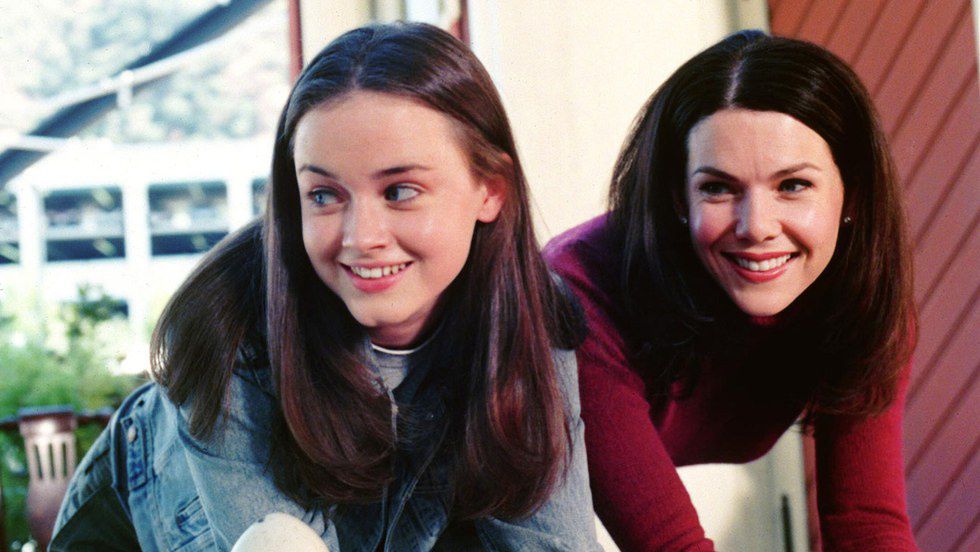She's fought ageism.
Carrie Fisher is 59 years old and still slaying the role of Leia in the most recent "Star Wars" release. However, despite how incredible she is as Leia, she has received major backlash because of her age. She is no longer sporting the golden bikini fantasy of all male "Star Wars" fans fantasy, and some critics have bashed her for that. She even predicted this ageism in a 2011 memoir, where she states "what I didn’t realize, back when I was this twenty-five-year-old pinup for geeks in that iconic metal bikini, was that I had signed an invisible contract to stay looking the exact same way for the next thirty to forty years." Fisher knew this came with the job, and she doesn't stand for it.
Recently, articles have been published regarding Fisher's looks and how it is a part of the acting role. For example, one writer for the New York Post wrote an article titled: "If Carrie Fisher doesn’t like being judged on looks, she should quit acting. " This is in direct opposition to the response Fisher has given to the agism. She has stood up for herself on social media with tweets saying things like:
"Please stop debating about whether or not I have aged well. Unfortunately, it hurts all of my feelings. My body hasn't aged as well as I have.
"Youth and beauty are not accomplishments. They're temporary happy, byproducts of time and/or DNA."
She more specifically aimed remarks towards the writer of the NY Post article, "OK, I quit acting. Now, can I not like being judged by my looks? Tell me what to do and who to be, oh wise New York post columnist."
Fisher isn't just making a statement on the idolization of youth in Hollywood, but she is taking a stance against blatant ageism in society.
She's fought sexism.
In addition, she complements her fighting against ageism with also fighting against sexism. She comments on the fact that men, such as Harrison Ford, are esteemed with age. Aging on a man is seen as power, but on a woman, it is despicable -- which is why, she said, there are no acting jobs for women of her age. This is only a part of the feminist ideologies Fisher stands for.
In 1983, Rolling Stone did a feature of Fisher and her role as Princess Leia. They touched on the feminist ideologies Leia brought to the big screen, but from the very start, they called Leia a "space-bitch." Fisher immediately refuted this term by ironically saying, "She has no friends, no family; her planet was blown up in seconds -- along with her hairdresser --so all she has is a cause." With this statement, she immediately blew the interviewers sexist reference to Leia off, showing just how strong Leia (and in turn Fisher) is, fighting for a cause. She was all business and not just a feminine figure to look pretty on screen.
Fisher has already warned Daisy Riddler -- Rey, in the new "Star Wars: The Force Awakens," against exploiting her sexuality in the trilogy. She said, "You should fight for your outfit. Don't be a slave like I was."
She's fought addiction.
Throughout Fisher's life, she has used drugs. She said she tried pot at a young age, and experimented with harsher drugs such as acid and cocaine. She comments, "We did cocaine on the set of "Empire," in the ice planet. I didn't even like coke that much, it was just a case of getting on whatever train I needed to take to get high."
Fisher went to rehab, but still turned to drugs. She admitted to doctors she felt "normal on acid," which made being diagnosed with a mental illness difficult. She didn't believe she had one; she just thought she was an addict. However, Fisher persevered and has made a huge impact in the film industry, as well as forming a major writing career.
She's fought mental illness.
Something that isn't talked often talked about regarding Fisher is her mental health. Fisher was diagnosed with manic depression, or bi-polar disorder -- something she said to have discovered when she was in her mid-teens. Her father was bi-polar as well. Fisher has even checked herself into a neuropsychiatric hospital following a particularly bad manic episode. "The only lesson for me, or for anybody," Fisher said, "is that you have to get help. It's not a neat illness. It doesn't go away."
Fisher has been open about her mental illness multiple times, setting a wonderful sense of openness about a topic that is usually taboo. Additionally, Fisher has openly talked about her treatment as well. She takes medication as well as receives electroconvulsive therapy regularly. Fisher also has a therapy dog. He is a French Bulldog named Gary.
Fisher isn't covering her mental illness or hiding it from the public eye. She discusses her treatment and how she has coped with her episodes throughout her life -- both healthily and unhealthily. The rawness in which she discusses shows a sense of strength that is to be admired." I am mentally ill. I can say that. I am not ashamed of that," Fisher said. "I survived that, I’m still surviving it, but bring it on."





























